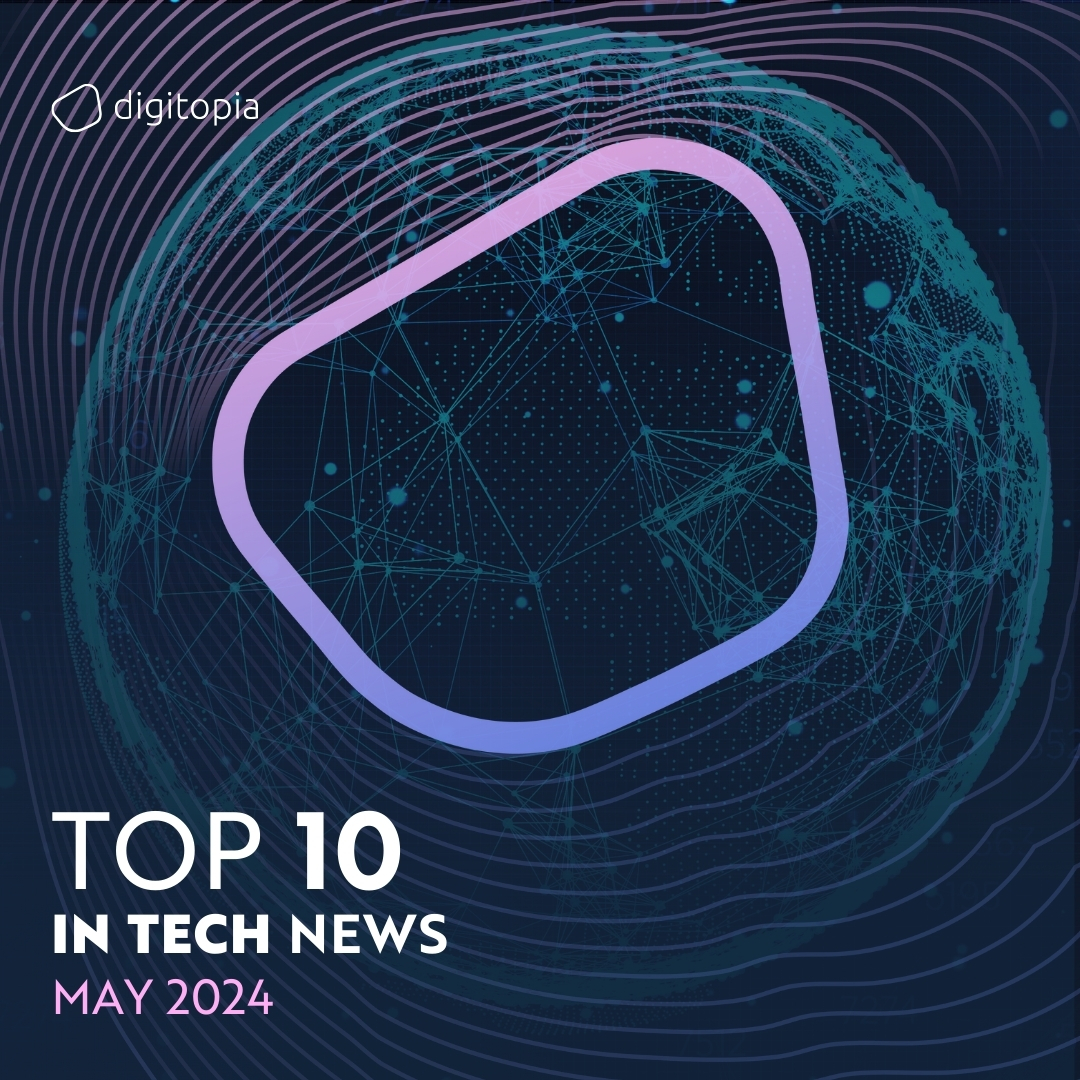
1- OpenAI releases GPT-4o, a faster model that’s free for all ChatGPT users
OpenAI has launched GPT-4o, an iteration of its GPT-4 model, enhancing text, vision, and audio capabilities and offering faster performance. This update is free for all users, with paid users receiving higher capacity limits. GPT-4o’s multimodal nature allows it to understand and generate content across voice, text, and images, with an API available for developers at half the price and twice the speed of GPT-4 Turbo. New features for ChatGPT include an advanced voice mode, acting as a real-time voice assistant. OpenAI CEO Sam Altman emphasized the company’s shift from creating benefits to enabling developers through paid APIs, while timing the launch ahead of Google I/O to showcase advancements in AI technology.
Source: The Verge
2- Microsoft debuts ‘Copilot+’ PCs with AI features
Microsoft unveiled “Copilot+” PCs, a new category of personal computers with AI features, to compete with Alphabet and Apple. At an event in Redmond, CEO Satya Nadella announced that these AI-powered devices, developed with manufacturers like Acer and Asustek, will start at $1,000 and ship on June 18. These PCs can handle AI tasks locally, featuring the “Recall” function to log user activities for easy searchability. Microsoft anticipates selling 50 million AI PCs next year. The lineup includes new Surface Pro tablets and Surface Laptops with Qualcomm Snapdragon X chips. This launch aims to strengthen Microsoft’s position in the AI and PC markets amidst increasing competition from Apple and others.
Source: Reuters
3- Google I/O wrap-up: Gemini AI updates, new search features and more
Google hosted its annual I/O developer conference, introducing a range of AI products, from new search and chat features to AI hardware for cloud customers. Many of these are in testing or limited to developers, showcasing Google’s AI focus amidst competition from companies like OpenAI. Key announcements included updates to the Gemini AI model, new AI tools such as Veo and Imagen 3, and “AI Overviews” in Google Search. The company also highlighted “Project Astra,” an AI assistant prototype by DeepMind, and the sixth-generation TPU, Trillium, for cloud customers. These innovations underscore Google’s commitment to enhancing its AI capabilities and maintaining its competitive edge.
Source: CNBC
4- These Artificial Blood Platelets Could One Day Save Lives
Platelets, essential for blood clotting, have a short shelf life, making them scarce even when blood donations are ample. To address this, Ashley Brown and her team at North Carolina State University and the University of North Carolina have developed artificial platelets that can be stored for long periods. Detailed in Science Translational Medicine, these synthetic platelets effectively stopped bleeding and promoted healing in rodents and pigs. Made from hydrogel nanoparticles, they mimic natural platelets and bind to fibrin to form clots. Unlike natural platelets, which must be stored at room temperature and have a short lifespan, synthetic platelets can be freeze-dried and rehydrated when needed. Brown’s team aims to test these in humans soon, with potential applications in ambulances, battlefields, and for patients with low platelet counts due to conditions like cancer.
Source: Wired
5- Elon Musk xAI Raises $6B, Valuing Company at $24B
Elon Musk’s xAI has raised $6 billion in a series B funding round, bringing its valuation to $24 billion. The funds will be used to launch xAI’s first products, build advanced infrastructure, and accelerate R&D. Key investors include Valor Equity Partners, Vy Capital, Andreessen Horowitz, Sequoia Capital, Fidelity, and Prince Alwaleed Bin Talal. xAI aims to develop AI systems that are truthful and beneficial for humanity, with a mission to understand the universe. The company previously released Grok-1, an AI modeled after “The Hitchhiker’s Guide to the Galaxy,” known for its witty and humorous responses.
Soruce: AIBusiness
6- OpenAI secures key partnership with Reddit
OpenAI has secured a deal to access real-time content from Reddit through its data API, enhancing ChatGPT and other products by incorporating Reddit conversations. This partnership, similar to a previous $60 million agreement with Google, allows OpenAI to improve its AI models’ precision and context-awareness. It also enables Reddit to develop AI-powered tools for users and moderators, like content summarization and response assistance, and to offer more tailored ads using OpenAI’s insights. While the community’s reaction is uncertain, Reddit CEO Steve Huffman supports the integration for promoting relevant content and engagement. This collaboration raises ethical questions about privacy and data usage, which OpenAI must navigate carefully.
Source: ArtificialIntelligence
7- In two years, 100% of enterprise PC purchases will be AI computers
AI chip revenue is projected to reach $71 billion in 2024, a 33% increase from 2023, and continue growing through 2028, according to Gartner. By 2025, industry revenue will surpass $91.5 billion. By 2026, all enterprise PCs will include AI capabilities with neural processing units (NPUs). AI-enabled PCs are expected to account for 22% of PC shipments in 2024, generating nearly half of AI chip revenue. High-performance AI chips are in demand for data centers, automotive, and consumer electronics. Companies like AWS, Google, Meta, and Microsoft are developing custom AI chips to improve efficiency. Intel plans to ship 40 million AI PC processors in 2024. The shorter lifespan of mobile phones is boosting device spending, expected to reach $688 billion in 2024.
Source: CompterWorld
8- How AI is testing the boundaries of human intelligence
Welcome to “AI v the Mind,” a new BBC series exploring the limits of artificial intelligence by comparing it to the human brain. AI can detect cancer, interpret ancient texts, predict the weather, and even understand animal communication. However, despite these advances, AI still lags behind human cognition in reasoning, creativity, and abstract thinking. The series will examine AI’s capabilities and limitations through monthly comparisons between human experts and AI tools on tasks like joke-telling, musical composition, and solving social problems. This exploration will reveal the current boundaries of AI and offer insights into the workings of the human mind.
Source: BBC
9- How AI could change EV charging
A pilot study by the University of Michigan and startup Utilidata suggests that AI can provide real-time data to improve EV charging reliability and the power grid. Researchers used AI to analyze EV charging behavior, revealing inconsistent power draw and lower power quality, which can damage equipment. This data could help utilities predict and manage grid impacts, advise drivers, and maintain EV charging stations. The study aims to inform larger research efforts and improve grid preparation for increasing EV adoption, ensuring the power grid can accommodate rising demand without causing outages.
Source: The Verge
10-Starliner: The US space industry’s next big thing?
Astronauts are preparing for launch in Boeing’s new Starliner, marking a significant step for the US space program since the Space Shuttle Atlantis ended its mission in 2011. The US had relied on Russian Soyuz capsules for astronaut transport, but the Commercial Crew Program (CCP) aims to change this by using commercial spacecraft. Boeing’s Starliner and SpaceX’s Crew Dragon were chosen, with Dragon already leading after successful missions. Starliner, designed for up to seven people, is now ready for its crewed mission, promising greater comfort and flexibility. This development ensures the US has sovereign access to space and fosters a competitive market for human spaceflight.
Source: BBC

